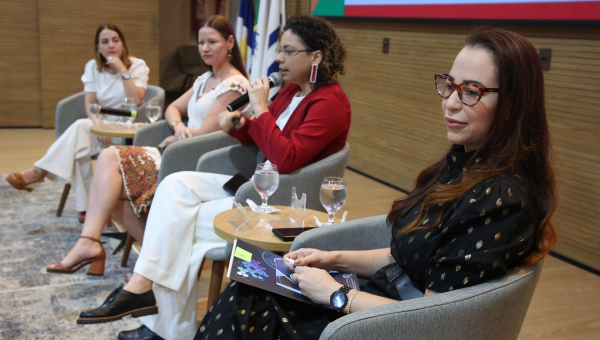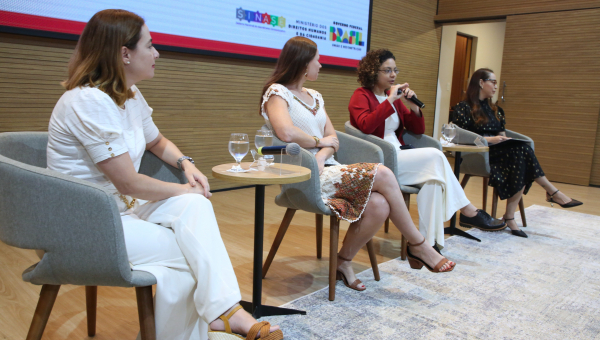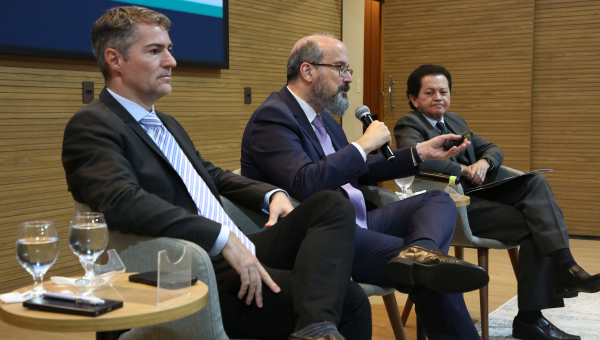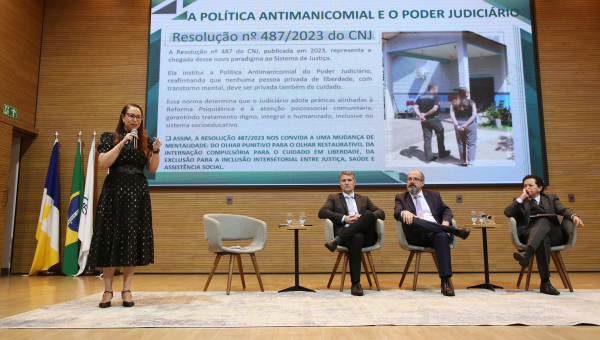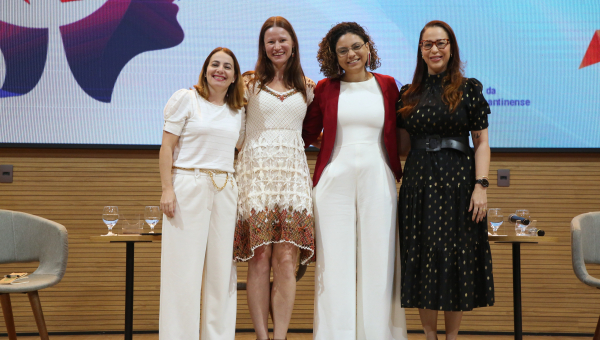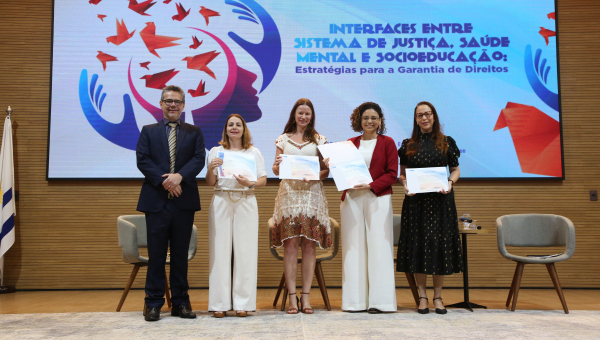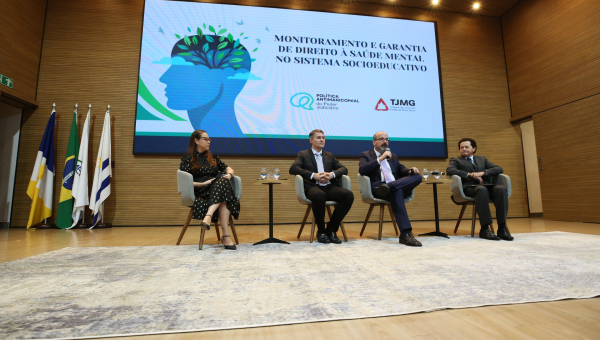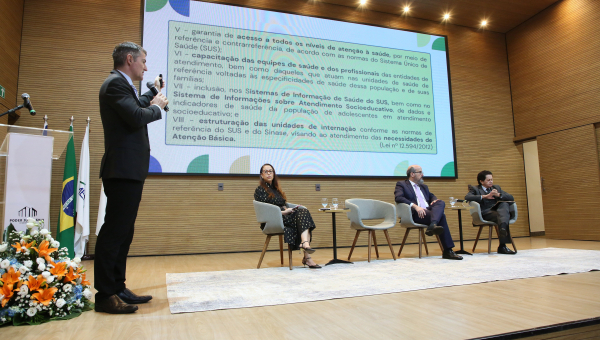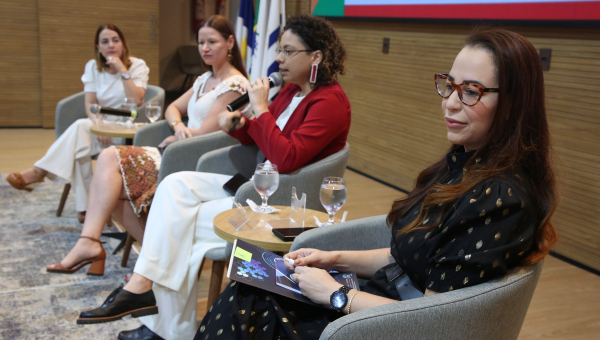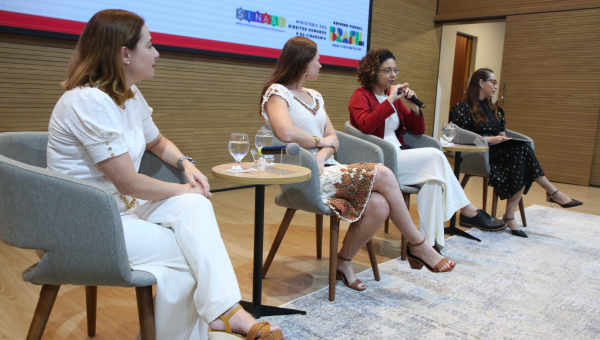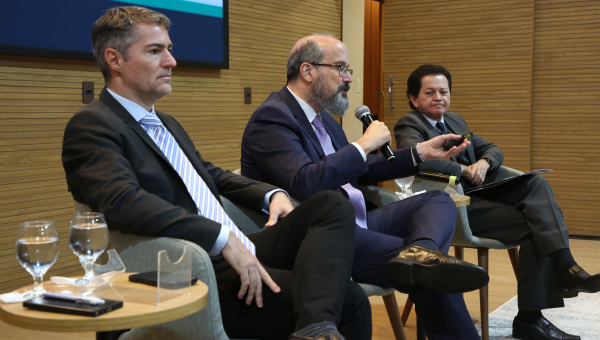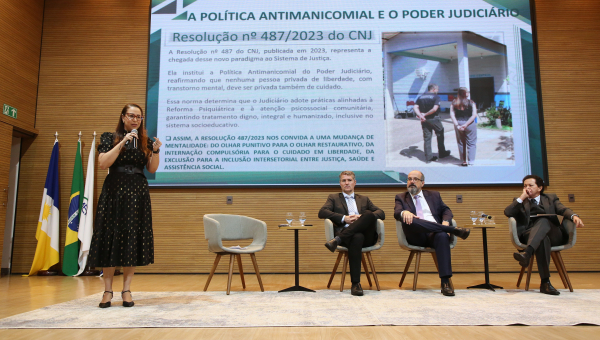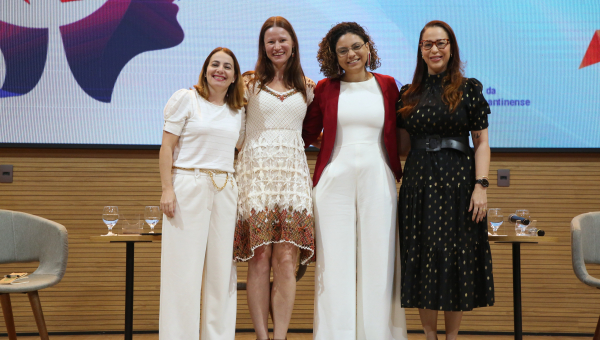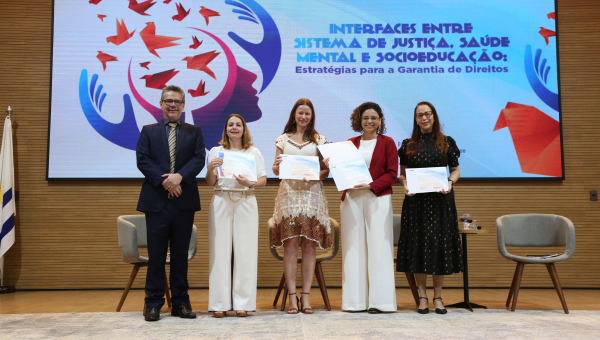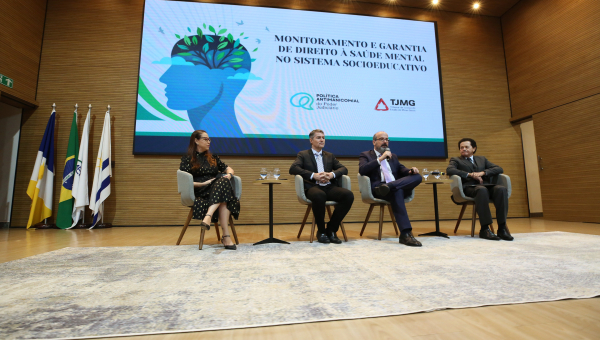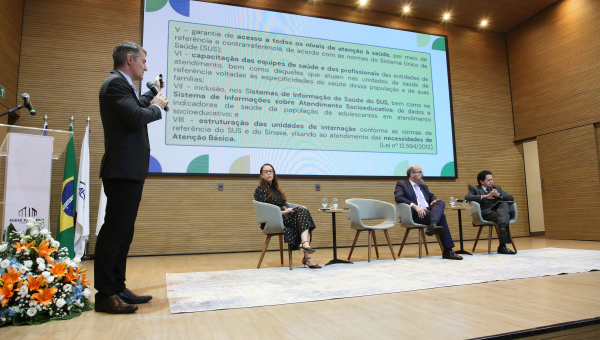
Care, listening and shared responsibility were at the center of debates this Thursday (October 23rd), during the second day of the event: "Interfaces among Justice System, Mental Health and Socio-education: Strategies for the Guarantee of Rights", held by the Court of Justice of the State of Tocantins (TJTO), through the Superior School of the Judges of the State of Tocantins (Esmat).
In the morning, two Thematic Tables brought together professionals from the Justice and Health Systems to reflect on individualized mental health care, based on the Individual Care Plan (IAP) and the Singular Therapeutic Project (PTS), and on the challenges of monitoring and guaranteeing rights in the socio-educational system.
The coordinator of Public and Socio-Educational Policies of the National Secretariat for the Rights of Children and Adolescents, Jamyle Maria de Sousa Gonzaga, opened the papers presenting the legal framework that guides the PIA and the main data of the national survey of the National System of Socio-Educational Care (Sinase) of 2024, focusing on mental health practices. She highlighted that the PIA, provided for in the Law no 12.594, of 2012 (Law of Sinase), must ensure the right to education, health and active listening of the adolescent and his family.
“Mental health needs to integrate the plan since its elaboration, with the effective performance of technical teams to ensure real results", she said.
Subsequently, the professor of the Federal University of the state of Tocantins (UFT) Juliana Biazzi Feitosa addressed the structural dimensions of violence and its relationship with the Brazilian socioeconomic context.
“It is impossible to think of a capitalist society uncoupled from violence, because it is based on inequality and exploitation," she said.
For her, understanding this logic is essential to propose transformative public policies. When dealing with the PIA and the PTS, Juliana reinforced its pedagogical and emancipatory character: "We do not work the adolescent in isolation. He belongs to a family, to a community, and it is there that he will return to".
Closing the table, Cristiana Marina Barros de Souza, from the Ministry of Health and Fiocruz (Oswaldo Cruz Foundation), explained that the PTS is a central tool for mental health care and highlighted that the ethics of care is based on listening and joint construction. "Light technology is in dialogue with the subject, in the shared construction of the Singular Therapeutic Project," she pointed out.
The mediation was conducted by public defender Elisa Maria Pinto de Souza Falcão Queiroz, from the Specialized Center for the Promotion and Defense of the Rights of Children and Adolescents (Nudeca/DPTO).
Monitoring And Guarantee Of Rights
Also in the morning, Thematic Table 4, with the theme on "Monitoring and Guaranteeing the Right to Mental Health in the Socio-Educational System", brought experiences and reflections on governance, empathy and intersectoriality.
Judge Afrânio José Fonseca Nardy, from the Court for Children and Youth of the city of Belo Horizonte and coordinator of the Comprehensive Care Program for Judicial Patients (PAI-PJ), shared the experience of the state of Minas Gerais in building care policies aimed at adolescents in conflict with the law, or "social-diverging", as you prefer to call.
“We need everyone, building strategies based on love", she stated.
He also highlighted the importance of the Resolution 487 of the CNJ, from 2023, which establishes the Anti-Asylum Policy in the Justice System, as a milestone for strengthening more human and participatory practices.
The prosecutor Sidney Fiore Júnior, from the Center for Operational Support of Childhood, Youth and Education (CAOPIJE/MPTO), presented legislation that protects the right to mental health of adolescents in compliance with socio-educational measures. He highlighted the National Policy of Comprehensive Health Care for Adolescents in Conflict with the Law (PNAISARI), established by the Ordinance nº 1.932 of 2024. "Deprivation of liberty cannot mean deprivation of health," he emphasized.
Closing the programming, public defender Elisa Maria Pinto Falcão Queiroz reinforced the role of the Public Defender’s Office in promoting and defending the rights of these adolescents and highlighted the importance of PNAISARI and the Psychosocial Care Network (RAPS) as instruments to guarantee dignified and humanized care. She stressed that intersectoriality is fundamental to break cycles of vulnerability and pointed out the Individual Care Plan (PIA) as a strategic management tool.
The Table was mediated by Judge Deusamar Alves Bezerra, holder of the Specialized Court of Childhood and Youth of the County of Araguaína (TJTO).
